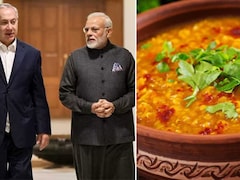In an era where trendy foods and new cafes grab our attention, it's easy to overlook the time-tested benefits of simple, natural foods like fruits and veggies. Processed and packaged foods, often loaded with salt, sugar, and unhealthy fats, aren't ideal for our bodies, especially if you're battling hypertension. So, what's the solution? It might be time to return to those juicy apples, crisp cucumbers, and crunchy beans. Here's what science says about the perks of upping your fruit and veggie intake.
Researchers at the University of Texas conducted a randomized control trial involving 153 people with hypertension and a high risk of worsening chronic kidney disease. "Patients with high blood pressure face two major problems: heart disease and kidney disease," said Dr. Donald Wesson, the study's lead investigator and a professor of internal medicine at Dell Medical School at the University of Texas at Austin.
"The study investigated whether reducing dietary acid can lower complications related to kidney and heart disease," Wesson explained. Animal products tend to increase acid levels, while fruits and vegetables help neutralize them.
Just 2 to 4 Cups of Fruits and Veggies Can Make a Big Difference
Participants were split into three groups: one added 2 to 4 cups of fruits and vegetables to their diet, another consumed two daily doses of baking soda, and the third group continued with standard medical care.
After five years, the study found that both the plant-rich diet and baking soda promoted kidney health, but only the increased fruit and vegetable intake benefited heart health, Wesson noted.
Also Read: Is Keto Diet Safe For Weight Loss? New Study Reveals Potential Downsides You Need To Know
The DASH Diet - Dietary Approaches to Stop Hypertension
The DASH diet is another great option for managing high blood pressure. It includes:
- Four to six servings of vegetables
- Four to six servings of fruit
- Three servings of whole-grain products
- Two to four servings of fat-free or low-fat dairy products
- Several servings of lean meats, nuts, seeds, and legumes
Fruits and vegetables are an integral part of a healthy diet. Photo Credit: iStock
Ways to Add More Fruits to Your Diet
1. Turn Snack Time into Fruit Time
Your snacking habit can become a healthy habit by using it to add more fruits to your diet. Choose any fruit you like.
2. Get a Gorgeous Fruit Bowl
Invest in a colourful fruit bowl and cutlery, designated only for eating fruits. You will be tempted to use it.
3. Carry Fruit to Work or School
Having fruits in easy access can help grow the habit of eating more fruits. Always have fruit around you.
Also Read: Are You Consuming Ghee The Right Way? Ayurvedic Doctor Highlights Common Mistakes
Ways to Add More Veggies to Your Diet
1. Salads
The simplest way to incorporate fresh vegetables. Use flavorful dressings to enhance taste. Click here for dressing recipes.
2. Snack with Dips
Cut veggies and use them as a snack with your favourite dips like garlic yogurt dip or hummus.
3. Smoothies
Blend leafy greens like spinach and carrots into tasty smoothies.
The study emphasises that a diet rich in fruits and vegetables should be a cornerstone in managing high blood pressure.
Disclaimer: This content provides general information only and is not a substitute for professional medical advice. Always consult a healthcare provider for specific recommendations. NDTV does not assume responsibility for the information provided.
